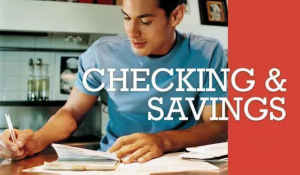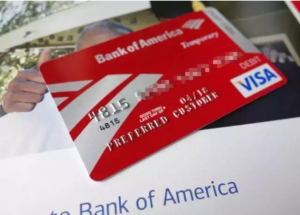Many prospective students are already preparing for their school trips to the United States, in addition to preparing luggage, there is one more important thing to consider, is how to spend money in the U.S. ~ Learn America for you to organize the new students to the U.S. bank account notes, to help you live in the United States more easily and conveniently! U.S. bank account necessary documents
Passport (visa), mailing address and telephone number. In addition, if you have, also bring your student ID, Social Security Number (Social Security Number, generally students will not have), international driver’s license and admissions permit (I-20).
Types of U.S. bank accounts
1、Checking Account: There are two types of checking accounts: interest-bearing and non-interest-bearing. Ask if there is a minimum deposit amount. How much service fee will be deducted if the deposit is not enough? How much is the handling fee for each check? How much is the penalty for bounced checks? Choose the type that best suits your financial situation.
Check printing: It is more economical to choose a check with a single pigmented surface, usually with a minimum of 200 checks. The name, address and telephone number are printed on the top left corner of the check. The checkbook will be sent directly to you in about seven to ten days. Before you run out of checks, you can fill out the reprint request form attached to your checkbook and receive a reprinted checkbook in about seven days. A copy will be sent to you when you open a checking account, after which you will have to pay a printing fee, which will be deducted directly from your account.
Check filling: Ask the bank staff for the correct way to fill out the check. Check carefully after each monthly statement comes in to avoid mistakes. In case of loss you must notify your bank immediately to stop payment. The United States is a country that uses a lot of personal checks, so filling out checks is a must.
2、Saving Account:You can use the same account number as your checking account and transfer money to each other or independently. The interest rate of this account is higher than that of the checking account. Usually there is a minimum deposit amount, insufficient deposit will lose interest, or need to pay service fees.
3、Money Market and Certificate Deposit: The interest rate is higher than the savings account, but there are more restrictions. The former has regulations on the amount of principal, monthly withdrawals and the number of times, while the latter must wait until the agreed-upon period before the principal and interest can be withdrawn.

ATM Card
With an ATM card and a Personal Identification Number (PIN), you can withdraw, deposit, and transfer funds at ATMs that are open 24 hours a day, regardless of the bank’s daytime hours.
Usually, there is no online fee for withdrawals at the ATMs attached to the branches of your bank; however, a fixed fee will be deducted each time you use an interbank ATM at a supermarket, department store, or airport. The number of bank fees in the U.S. is large and surprising. In addition to the monthly billing fees, both banks charge fees when interbanking.
Most of the ATM cards in the U.S. have the function of Debit Card. When paying at a supermarket, if the cash register is equipped with an automatic card selector (the customer can choose to pay with a supermarket membership card, credit card, or ATM card), the card can be swiped and the selector screen will show “savings account” and “checking account” for us to choose from. Then we will be charged directly from the account we have designated.
So be sure to get the signed receipt from the supermarket and record it in our income and expense book for future reconciliation.
*Note: Don’t write your PIN number on the card; don’t put the card in your wallet so that the tape is not close to the tape of other cards; cut off expired cards and cancel them; tear up the PIN slip; limit the total amount of withdrawals per day; and don’t forget to take the card back when you are finished using it.
Credit Cards
If you are new to the United States and have no credit history at all, it is difficult to apply for a credit card issued by a major national bank. Therefore, you can start by applying for a credit card issued by the bank where you have an account. (Once you have a credit history after a year, you can apply for other credit cards with more favorable terms and conditions that are widely accepted.) In general, your school’s bank offers a Debit Card, but it can be used as a Credit Card.
When making a purchase, you will be prompted to use credit card service or debit card service (Credit or Debit). If you choose credit card service, you will be billed on a recurring basis, but you can grow your credit history. Students who have a blank credit history early on can use this service before applying for a credit card.
Credit cards can be applied for in two ways.
If you have income from school scholarships and other legitimate on-campus jobs, you can ask your school faculty or employer to give proof of income. Usually a certain amount (most credit card companies require an annual income of $30,000 or more) is required before the bank will approve the application. If you have a scholarship, don’t forget the tuition portion when you fill out the annual income. In other words, annual income = scholarship + annual tuition.
In addition to having a checking and savings account at that bank, there are also funds such as time deposits to prove your financial strength before the bank will accept the application.
Another possible option is to apply to obtain a credit card or sub-card in China, and then apply to your credit card company in China to change to a new card that uses a U.S. address and pays in U.S. dollars.
Establish a good credit history

Bills should be paid on time, and most bills will have a payment deadline, so it is best to pay about a week early. Delayed payments can result in fines and a loss of credit. It is also important to keep your bank balance above the amount needed to pay your bills at all times, as bounced checks can affect your credit.
The United States is a country that places a high value on personal credit history, and it is important to manage your money appropriately. All of a person’s credit history is open and transparent to the credit granting agency, and any late or bad debts, even if they are not large, can put a big dent in your credit.
Translated with www.DeepL.com/Translator (free version)


